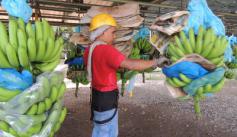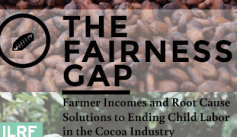As national and international trade unions and nongovernmental organizations, we are writing in response to the Fair Labor Association’s request for input concerning the FLA’s “Organizational strategy on wages,” that was shared with some of us in December 2014 and FLA’s “Draft Fair Compensation Workplan.”
Overall, the wage strategy that FLA has circulated is exceedingly long on plans to study what constitutes adequate wages, but notably short on what FLA member companies will actually be obligated to do to raise wages in their supply chains.
While the FLA’s proposed wage strategy is presented as a mechanism for implementing a recently added provision in the FLA Workplace Code of Conduct -- that member companies make progress toward adequate wages for workers -- it lacks the urgency commensurate with the global crisis of poverty wages, and associated severe labor rights and safety violations, in the supply chains of FLA member companies.


